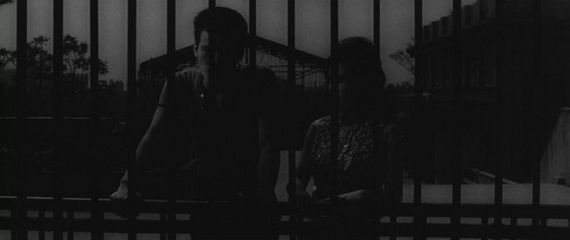I wanna find a better way to get ahead in the world.

A most appropriate film to watch on the cusp of Labor Day, Masahiro Shinoda's A Flame at the Pier plays like a synthesis of Elia Kazan's On the Waterfront and Luis Buñuel's El Bruto. Made in 1962, the film follows Sabu (Takashi Fujiki), an impressionable war orphan who acts as an enforcer for a crippled shipping company executive intent on preventing its dockworkers from unionizing. As Sabu explains several times -- often enough that the viewer could recite along with him -- Mr. Kitani (Kôji Nanbara) saved him during an air raid when he was just four, so naturally he feels obliged to do the bitter veteran's bidding, even when that extends to intimidation and the occasional beating of a labor organizer. The trouble is the ringleaders have a way of turning up dead in the water and Sabu is the logical person for suspicion to fall on.
What's tragic about all this is Sabu is nowhere near as slow on the uptake as Terry Malloy or Pedro the Brute. He's simply loyal to a fault, content to be Mr. Kitani's lapdog at the same time he pursues puppy love with pretty waitress Yuki (Mariko Kaga), who's also the object of dockworker Kaga's (Tamotsu Hayakawa) unrequited affection. This situation is contrasted with Mr. Kitani's barely concealed affair with Reiko (Kyôko Kishida), the wife of company president Mr. Matsudaira (Sô Yamamura), who's painfully aware of their indiscretions. Like Sabu is to Mr. Kitani, though, Kitani is useful to Mr. Matsudaira, who'd rather not get his hands dirty when it comes to labor disputes.
Just as Shinoda's One-Way Ticket to Love was predicated on the inclusion of a popular song, A Flame at the Pier features a number musical interludes, including multiple instances of Sabu whipping out an acoustic guitar to sing his girl a tender ballad. When he accompanies Mr. Kitani to a fancy soirée at the big boss's mansion and is bullied into singing a rockabilly number a capella, though, he learns he's never going to be more than a curiosity -- or a source of cruel entertainment -- for his so-called betters.